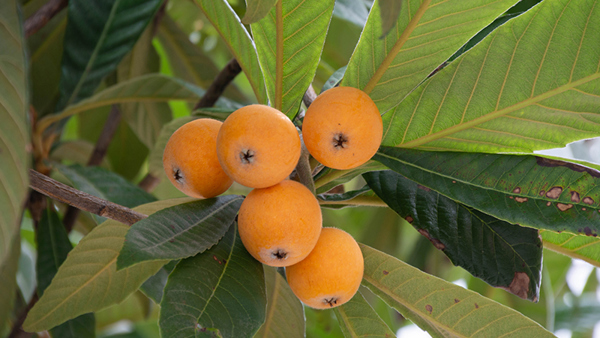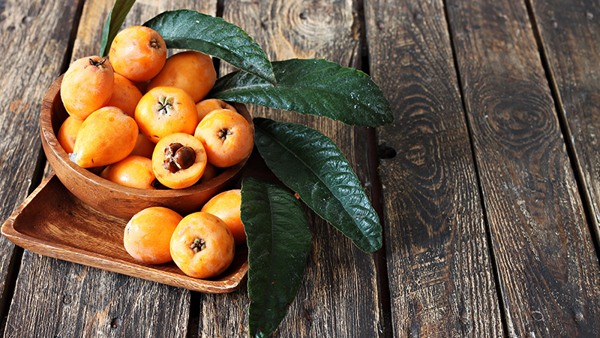Yates Account
Join now
Create a Yates account today!
Sign up to join the Yates Garden Club for monthly e-mails packed with seasonal inspiration, tips for success & exclusive promotions.
Plus if you’re a Garden Club member you can take part in the Yates Growing Community - a blog to share successes, get advice & win prizes in fun challenges along the way!

Forgot password
Enter the email address associated with your account, and we'll email you a new password.

Loquats make for a gorgeous specimen tree in the garden. The golden-yellow fruit is delicious when eaten fresh, stewed or turned into a jam. Loquats are a very hardy plant and will grow in most areas except for cold climate gardens.
How to grow Loquats in a garden
- Choose a sunny spot with well drained soil. Enrich the soil with Yates Dynamic Lifter Organic Plant Food. If the soil is clay based, add gypsum and fork in well.
- Dig the planting hole twice as wide and to the same depth as the root-ball. Remove the plant from the container, gently tease the roots and cut away any circled or tangled roots.
- Position in hole and backfill with soil, gently firming down. Form a raised doughnut shaped ring of soil around the outer edge of the plant's root zone. This helps keep water where it's needed. Always water in well after planting to settle the soil around the roots and keep the soil moist for several weeks while the new plant establishes.
- Mulch around the base with organic mulch like bark chips, woodchip or pea straw, keeping it away from the trunk.
- Water deeply, once or twice a week, depending on weather conditions.
- During the growing and flowering/fruiting season, feed with Yates Thrive Citrus & Fruit Granular Plant Food. Throughout the year, apply Yates Thrive Natural Fish & Seaweed+ Plant Food Concentrate.


How to grow Loquats in a pot
- Choose a pot at least 600mm wide. Position in full sun and fill with quality potting mix, such as Yates Premium Potting Mix.
- Remove the plant from the container, gently tease the roots and cut away any circled or tangled roots.
- Position in hole and backfill with potting mix, gently firming down.
- Water in well. Water deeply, once or twice a week, depending on weather conditions.
- During the growing and flowering/fruiting season feed with Yates Thrive Citrus Liquid Plant Food. Throughout the year, apply Yates Thrive Natural Fish & Seaweed+ Plant Food Concentrate.
Growing tips
- Check the soil pH with a soil pH test kit. Loquats prefer a slightly acidic soil between 5.5 and 6.5. If the pH is higher than 6.5, to lower soil pH apply Yates Soil Acidifier Liquid Sulfur.
More Plants
Lemon trees can grow up to 4m, but you can also get dwarf varieties that only grow to 1.5m which are perfect for small gardens and for pots.
Feijoa
Feijoa trees are a familiar sight in kiwi gardens; they're also a great choice for an edible hedge. The delicious fruit can be eaten fresh; they’re also perfect for using in cakes, muffins, jams, cocktails, desserts, fruit salad and smoothies.
Yates Thrive Citrus & Fruit Granular Plant Food
Fast acting, gradual feeding plant food specially formulated to grow citrus & fruit trees, with high potassium for more abundant fruit & added magnesium to help prevent leaf yellowing.
Yates Thrive Citrus Liquid Plant Food
Provides your citrus trees with the balanced nutrients they require for healthy growth, fruit production and development.
Yates Dynamic Lifter Organic Plant Food
Releases nutrients slowly, improves the structure and moisture retention of the soil and encourages earthworms and beneficial soil micro-organisms.
Yates Premium Potting Mix
A premium potting mix, ideal for all potted plants and shrubs, including ornamentals, fruit trees, vegies and herbs.














Share
Share this article on social media